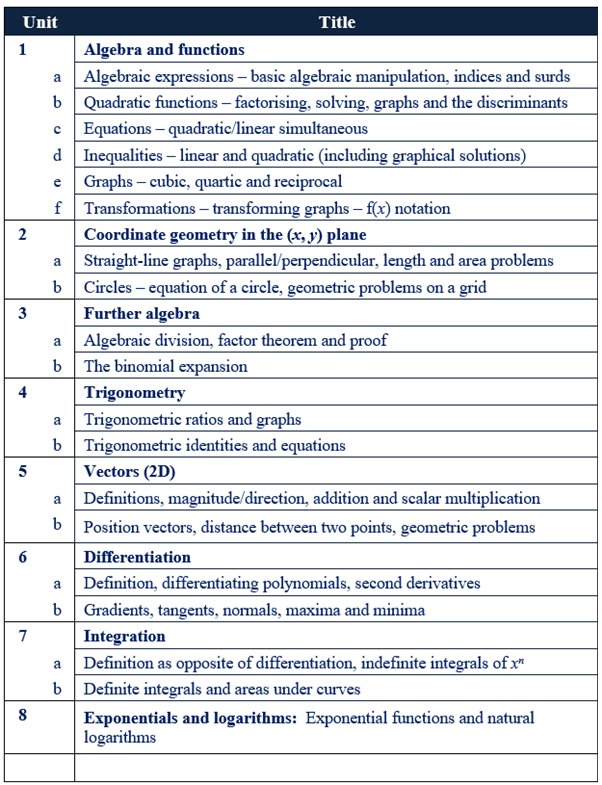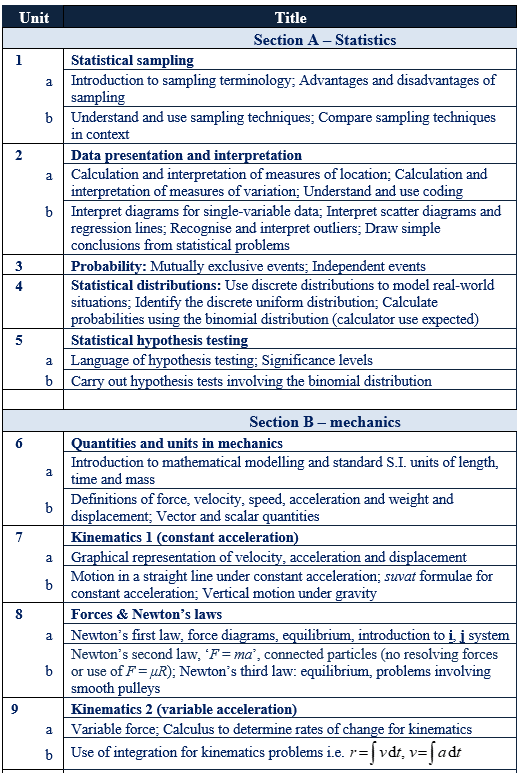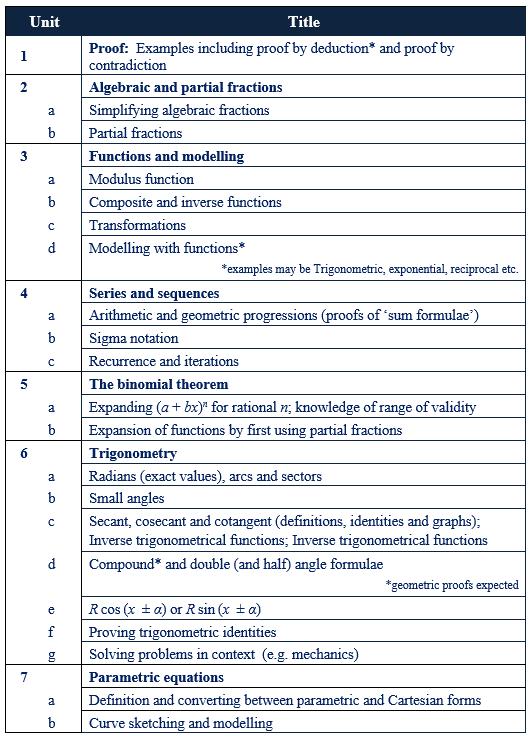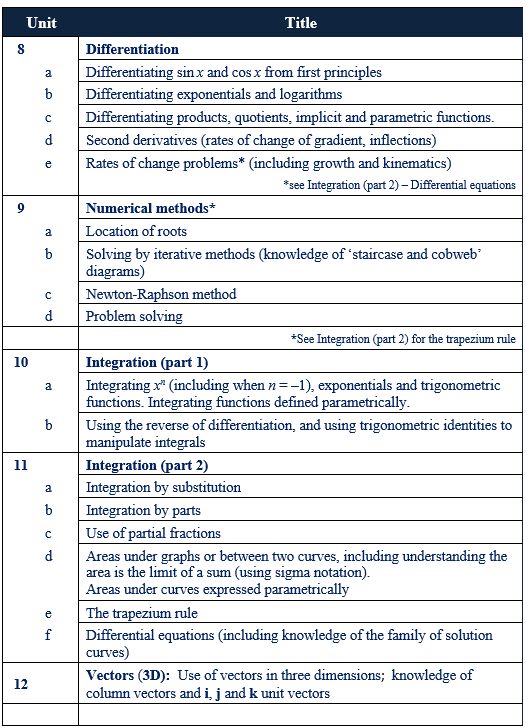Mathematics
Head of Department – Mr J. Barlow
At Holy Family our overriding belief is that maths is for life, not just sitting an exam in the summer of Year 11. Our aim is to produce pupils who enjoy and achieve within mathematics. We strive to develop pupils through building upon prior knowledge, addressing gaps in pupil understanding and being ambitious with all pupils to become ‘the best they can be’.
Maths is not about cramming for an exam – it lets you DO STUFF! Without mathematics we have no engineers, architects, computer programmers, airline pilots, astronauts, … the list is endless. We aim to embed maths throughout the whole curriculum, forging links between subjects so that students appreciate the importance and beauty of the subject.
We are ambitious for all pupils. We understand that pupils have different starting points, and our assessment process allows us to adapt to meet the differing needs of pupils.
At all key stages we follow the three strands of the National Curriculum: fluency, reasoning, and problem solving. We believe that fluency is key to all mathematical success, and so a great emphasis is placed upon this as the foundation upon which all else is built. We strive to develop reasoning skills – this often goes together with improving literacy so that pupils do not experience cognitive overload when reading and interpreting questions, and thus having little capacity to attempt the mathematical task at hand. By ensuring fundamental processes are thoroughly learned we are freeing up valuable ‘brain space’ for pupils to reason mathematically using their existing knowledge, and ultimately tackle problems that may at first appear beyond them.
Our aims are:
• Improve spoken language and communication throughout insisting upon correct terminology and descriptions in class (whole school priority)
• Improve literacy through focussing upon keywords and descriptions, as part of the whole school push to improve literacy for pupils.
• Overcome ‘maths anxiety’ by ensuring the curriculum is ambitious for all whilst supportive enough to help learners develop a love of the subject through achieving success
• Prepare students for their next steps – success at GCSE and beyond.
These key drivers guide our approach to everything we do
Key Stage 3
We operate a three-year Key Stage 3, which builds upon knowledge and skills developed at primary school and prepares pupils for the next stage of their education.
The timetable is a two-week split, with Years 7, 8 and 9 pupils having Mathematics seven times over the fortnight.
The start of each lesson usually consists of some form of retrieval practice, where the teacher will address misconceptions, revisit previously covered topics, or link previous learning to what will be taking place in the lesson.
Our curriculum at Key Stage 3 has been carefully thought out so that each topic builds upon what has come before. We firmly establish certain fundamental skills, simple facts and mathematical truths to ensure continued success and understanding. If the foundations are not strong then we cannot build a house! We look at increasing levels of depth for the different elements within each topic, and focus upon embedding the essential knowledge at every stage. We use many of the White Rose resources within lessons, although these are adapted to best suit our pupils.
Each unit starts with a ‘What’s the point in learning…?’ sheet. This GREEN SHEET is at the start of each unit and makes clear to pupils WHY they are learning the topic, and HOW it plays a role in life outside the classroom.
Each half term pupils complete a UNIT ASSESSMENT. In this low-stakes quiz, pupils are able to refer to a revision sheet of their own making. This promotes independent learning and helps students learn how to revise and prepare for examinations. Our assessments are split into a ‘fluency’ section, which checks fundamental skills and knowledge recall, and then moves on to a ‘core’ section which assesses pupils in greater depth. After completion, pupils complete a YELLOW SHEET where areas for development are highlighted, and which directs them to further practice and consolidation using the MathsWatch learning platform.
Pupils complete two SUMMATIVE ASSESSMENTS each year. These take place in January and June, and assess all pupil learning up until that point (including previous years). This accumulation of knowledge checking ensures pupils develop a deeper understanding of topics and how they link together. Similar to the unit assessments, each of these is followed up by the teacher modelling good techniques and addressing misconceptions, and pupils are then expected to compete a PURPLE SHEET which addresses areas for development.
A sample of pupil voice is taken regularly to monitor pupil attitudes to learning and inform planning and development of the curriculum. This aids RESPONSIVE TEACHING as the results are discussed in department meetings and actions taken depending upon the views of teachers and pupils. This has led to further refinement of the curriculum to continually reflect the needs of our pupils and ensure they can be the best that they can be.
Maths - Key Stage 3 Curriculum Maps
Key Stage 4
At Key Stage 4 pupils follow the same core curriculum, which builds upon the foundations that have been put in place at Key Stage 3. Pupils are given clear guidance as to what they should expect to learn in each unit, as well as how this type of mathematics is used in ‘real life’.
In Year 10 pupils study:
- Graphs and representing data
- Algebra
- Geometry
- Further geometry
- Similarity and congruence
- Equations
- Ratio and proportion
Each unit is followed by a unit test. The unit tests check FLUENCY skills, as well as REASONING and PROBLEM SOLVING. The style of questioning requires both recall of fundamental facts, procedures, and knowledge, as well as more advanced questioning which requires a deeper understanding which allows pupils to make connections between seemingly disparate topics and skills.
Just as in Key Stage 3, after each assessment teachers model excellent answers and direct pupils to follow-up questions based upon their own individual requirements.
At the end of Year 10 pupils sit two synoptic papers to assess all of their mathematical skills to date. At this point a decision is made as to tiers of entry, although the curriculum is designed in a way to enable a change of tiers throughout Year 11 if this is considered necessary. By leaving tiering decisions until this point we aim to ensure no pupil is disadvantaged due to the decisions made for them early in their school life.
In Year 11 pupils may study:
- Vectors and geometric proof
- Further statistics
- More trigonometry
- Equations and graphs
- Circle theorems
At the end of the course pupils sit three examination papers. Two of these three papers are calculator-based. As a school we recommend using a Casio scientific calculator – these are available for £10 from the school office or directly from the Maths department.
Key Stage 5
Progression into Key Stage 5 is supported throughout the GCSE course – teachers of set 1 and 2 talk to pupils about the expectation that they will progress into post-16 study. The most able are exposed to A Level concepts early to stretch and challenge. Set 1 sit the GCSE Algebra Award in January of Year 11 – this is used to expose them to harder examination questions, develop their algebra skills and to assess suitability for A Level Mathematics.
At Key Stage 5 we offer A Level Mathematics and, when the demand is there, A Level Further Mathematics. The latter has most recently been delivered by staff at the University of Liverpool and the National Centre for Excellence.
A Level Maths is delivered by our most experienced members of the department across seven lessons a fortnight. At the end of Year 12 pupils sit the AS Level Mathematics examination. At this point a very small number of pupils may decide not to continue to study the full A2 course at Year 13; by sitting the AS level examination it means they are leaving with a qualification for their hard work.
The rest of the cohort go on to Year 13 where they continue their studies of Pure and Applied Mathematics.
At the end of the course, assessment comprises three two-hour exams. Paper 1 and Paper 2 cover the Pure course, whilst Paper 3 is Applied. Calculators are not only allowed but are essential for all three papers. Pupils following the course are required to purchase their own Casio ClassWiz fx-991EX. These are available from the Maths department for £20.
AS Pure Mathematics – content overview

AS Applied Mathematics – content overview

A2 Pure Mathematics – content overview

A2 Applied Mathematics – content overview

Enrichment
The Mathematics department enters the pupils in the national UK Mathematical Trust competitions as well as more local Mathematical Association competitions, both as individuals and in teams. There is also a puzzle club at lunchtime on Thursdays.
We are a member of the Advanced Mathematics Support Programme and are able to offer Further Maths as and when the demand is there in Y12 or Y13.
As well as the Tuesday after school Maths Clinic the Mathematics teachers regularly run after school and holiday intervention and revision sessions, particularly in the run up to the public exams so that our students can attain their full potential.
A number of students are invited to train as a Maths Coach in Y9 and perform this duty in Y10 and Y11. The opportunity provides these students with insight into how students learn, maths misconceptions, a better understanding of basic maths skills, proof of responsibility and improves communication skills and self-confidence. Potential Maths Coaches are chosen from various sets.
Resources
We have subscribed to the following websites to aid students independent learning and revision:
The above websites enable students to watch videos, see various examples and contain hints and tips if they are struggling. All students have unique login details for each of the above which enables them to access all the revision material and complete tasks set by their Mathematics Teacher.
Scientific calculators are required at GCSE so it is recommended pupils purchase one as soon as possible in order to familiarise themselves with the various functions available. The majority of our pupils use the Casio fx85 model which can be purchased within school.
Useful links
Entry Level syllabus:
GCSE syllabus:
A-Level syllabus:
Careers
Students with a strong mathematical background are ideally placed to excel in a number of careers. The self-discipline and rigour required to tackle mathematical problems makes strong students extremely attractive to potential employers, and studies have shown that typically pupils with a ‘good’ pass at Mathematics A Level go on to earn around 11% more than their peers over the course of their career.
Employers in general are impressed with the skills good mathematicians possess, but for some jobs mathematical knowledge is essential. Some jobs in which mathematics is a vital component are:
- Accountancy, banking and finance incl. Accounting, Actuaries, Investment Banking
- Business, consulting and management incl. Auditing, Business Consultants
- Data analysis
- Energy and utilities
- Engineering and manufacturing e.g. civil, structural, electrical, marine, aerospace, chemical, mechanical, biomedical, automotive, nuclear and environmental engineers
- Environment and agriculture
- Healthcare
- Information technology
- Property and construction
- Science and pharmaceuticals
- Transport and logistics
In addition to these careers there are many maths related apprenticeships including
- Payroll Administrator
- Actuarial technician Financial services administrator
- Assistant Accountant Workplace Pensions (administrator or consultant) -
- Financial Services professional Motor Finance Specialist
Useful links
https://www.careerpilot.org.uk/job-sectors/subject/maths
https://www.mathscareers.org.uk/careers/
https://www.prospects.ac.uk/jobs-and-work-experience
https://www.teachwire.net/news/careers-in-maths-help-students-understand-the-options